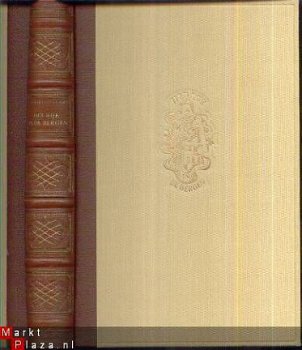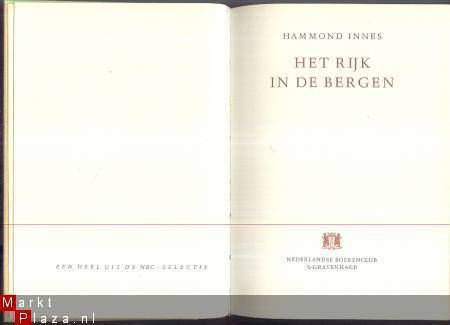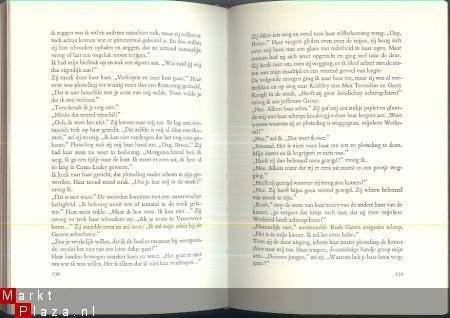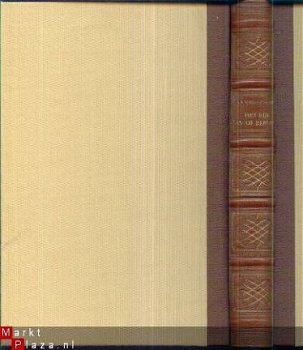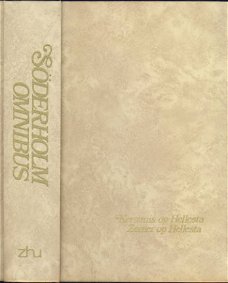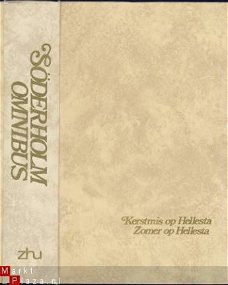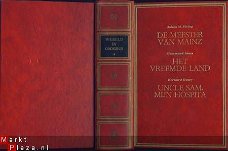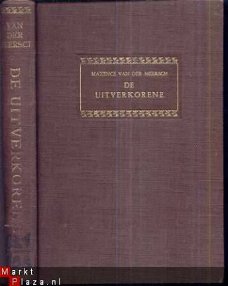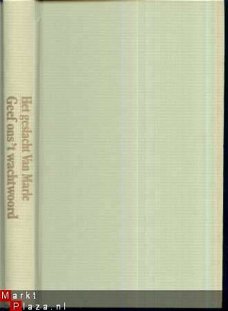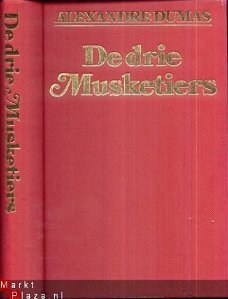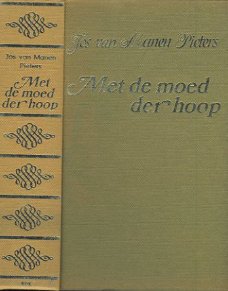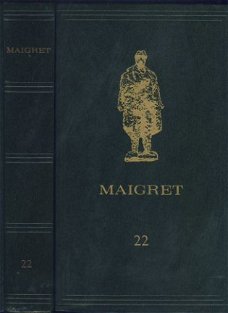
HAMMOND INNES**HET RIJK IN DE BERGEN*CAMPBELL'S KINGDOM**NBC
Kenmerken
- Conditie
- Gebruikt
- Levering
- Niet van toepassing
Omschrijving
HAMMOND INNES
**HET RIJK IN DE BERGEN**
**CAMPBELL'S KINGDOM**
vertaling ELs Veegens Latorf.
NBC 'S GRAVENHAGE.
ARTIKEL INVENTARIS CODE 3.080
FORMAAT 213 X 150 X 38 + 340 PGS + 580 GRS.
HALF LINNEN RUG IN HALF LEDER.!!
VERZENDING IN BELGIE 5,50 EURO NR NEDERLAND 8,50 EURO.
**IN EVERY WORK OF GENIUS WE RECOGNIZE OUR OWN OBJECTED
THOUGTS. THEY COME BACK TO US WITH A CERTAIN ALIENED MAJESTY.**dixit RALPH WALDO EMERSON.
Ralph Hammond Innes (July 15, 1913 – June 10, 1998) was an English author who wrote over 30 novels, as well as children's and travel books.
He was born in Horsham, Sussex and educated at Cranbrook School in Kent. He left in 1931 to work as a journalist, initially with the Financial Times (at the time called the Financial News). The Doppelganger, his first novel, was published in 1937. In WWII he served in the Royal Artillery, eventually rising to the rank of Major. During the war, a number of his books were published, including Wreckers Must Breathe (1940), The Trojan Horse (1941) and Attack Alarm (1941); the last of which was based on his experiences as an Anti-Aircraft Gunner during the Battle of Britain. After being demobbed in 1946, he worked full-time as a writer, achieving a number of early successes. His novels are notable for a fine attention to accurate detail in descriptions of places, such as in Air Bridge (1951), set partially at RAF Gatow, RAF Membury after its closure and RAF Wunstorf during the Berlin Airlift.
Innes went on to produce books in a regular sequence of six months of travel and research and then six months of writing, with many of these works featuring the sea. His output decreased in the 1960s, but was still substantial, and he became interested in ecological themes. He continued writing until just before his death. His last novel was Delta Connection (1996).
Unusually for the thriller genre, Innes' protagonists were often not "heroes" in the typical sense, but ordinary men suddenly thrust into extreme situations by circumstance. Often, this involves being placed in a hostile environment (the Arctic, the open sea, deserts), or unwittingly becoming involved in a larger conflict or conspiracy. The protagonist generally is forced to rely on his own wits and making best use of limited resources, rather than the weapons and gadgetry commonly used by thriller writers.
Four of his earlier novels were made into films: Snowbound (1948) from The Lonely Skier (1947), Hell Below Zero (1954) from The White South (1949), Campbell's Kingdom (1957) from the book of the same name (1952) and The Wreck of the Mary Deare (1959) also from the book of the same name (1956). His 1973 novel Golden Soak was adapted into a six-part television series in 1979.
His great love and experience of the sea, as an experienced yachtsman, was reflected in many of his novels. This was also reflected in his leaving the bulk of his estate on his death to the Association of Sea Training Organisations, to gain training and experience in sailing the element he loved.
NOVELS:
The Doppelganger (1937)
Air Disaster (1937)
Sabotage Broadcast (1938)
All Roads Lead to Friday (1939)
Wreckers Must Breathe (1940)
The Trojan Horse (1940)
Attack Alarm (1941)
Dead and Alive (1946)
Killer Mine (1947)
The Lonely Skier (1947)
The Blue Ice (1948)
Maddon’s Rock (1948)
The White South (1949)
The Angry Mountain (1950)
Air Bridge (1951)
Campbell’s Kingdom (1952)
The Strange Land (1954)
The Wreck of the Mary Deare (1956)
The Land God Gave to Cain (1958)
The Doomed Oasis (1960)
Atlantic Fury (1962)
The Strode Venturer (1965)
Levkas Man (1971)
Golden Soak (1973)
North Star (1975)
The Big Footprints (1977)
Solomons Seal (1980)
The Black Tide (1982)
High Stand (1985)
Medusa (1988)
Isvik (1991)
Target Antarctica (1993)
Delta Connection (1996)
The Last Voyage: Captain Cook’s Lost Diary (fictional diary) (1978)
